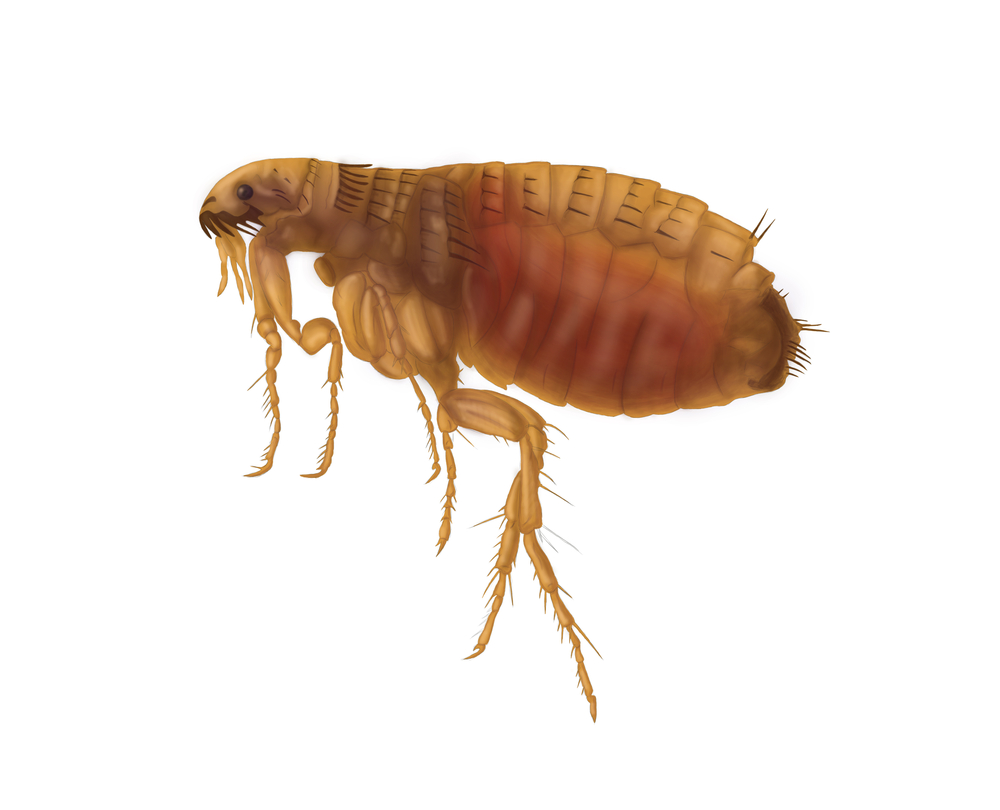Flea/ Tapeworm Cycle
By Dr. Robert R. Blease DVM
Question: What about the flea/tapeworm cycle and how to best prevent, or if it’s too late, to rid your dog and home of these nasty pests!” Jen Macri, April 2, 2015
Answer: Dr. Robert R. Blease DVM
Fleas are very easy to kill, prevent, and eradicate if you understand the flea’s life cycle and you have consistency and compliance. You cannot give a flea an even break, eventually, they will take advantage. Fleas transmit tapeworms, so it is obvious you cannot control tapeworms until you control fleas.
Fleas are very cyclic in their breeding and activity. Adult fleas cannot survive low temperatures and low humidity. The breeding cycle of the flea varies in NJ from 120
days (egg-laying female [2,000 eggs] to as short as 11 days when weather conditions are ideal for fleas. It should be obvious that flea larvae and pupae that survive the winter generally take months to double and redouble in the Spring. But in August, when it’s 95 degrees out and the humidity is high (90%), a few fleas can be responsible for
tens of thousands of flea eggs and larvae in one month. The obvious answer is to limit the fleas in the house in late Fall and not to let fleas breed on your pets in the Spring or any time of the year.
There are many factors that enter the picture besides the weather, heat, and humidity. Several pets in the same house and the age of the animals are a factor. Young and old pets are less capable of killing fleas. There are no fleas outside during the winter unless they are on animals, including outside pets, raccoons, opossums, and rabbits. Fleas do not jump from pet to pet, nor do they leave any mammal willingly. To prevent and break the cycle monthly flea preventative must be either eaten or placed topically on the neck or the back.
Pet shops carry many different products, most of them are promoted by untrained sales representatives and fancy advertising. Most of these products are old
technology, ineffective and when improperly used, may injure the pets they were intended to help.
The secret of the flea/tapeworm cycle is to use a product designed to be used every month. Many flea control products available only to veterinarians
are multi-functional in that they control ticks, [prevent heartworms (carried by mosquitoes) and internal parasites. Again, a discussion with your veterinarian is invaluable and a complete program can be tailored to your needs once your veterinarian has the information regarding all pets, housing, exposure, and children. Fleas and ticks carry diseases to other animals and to people. It pays to safeguard
your pets and your family and this can be easily accomplished by following your veterinarian’s program (compliance) 12 months a year.


